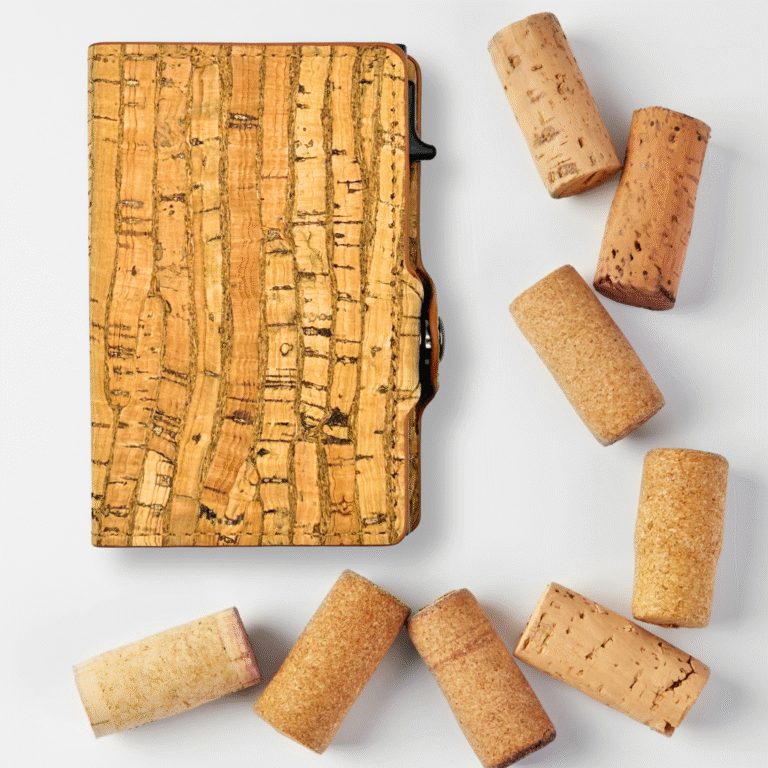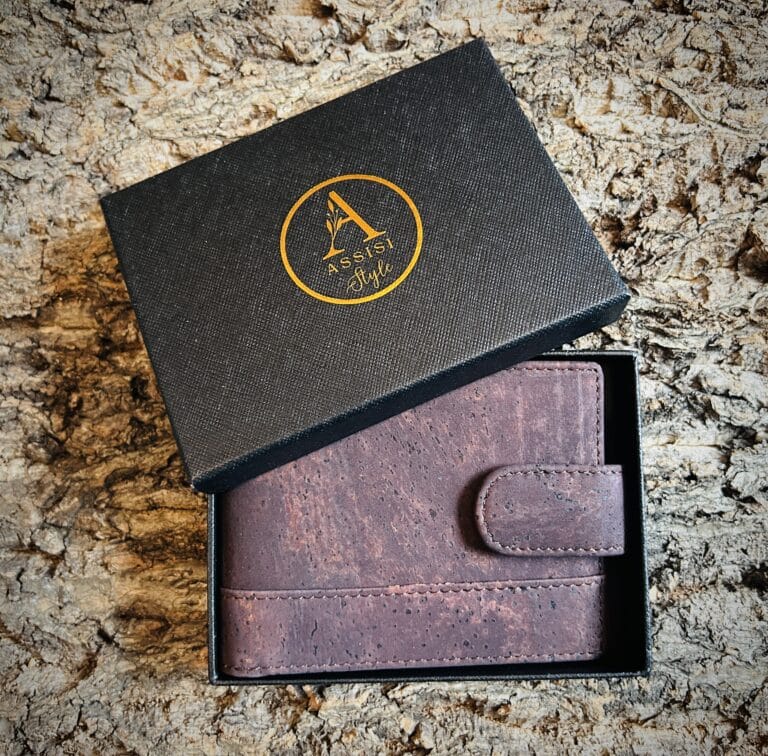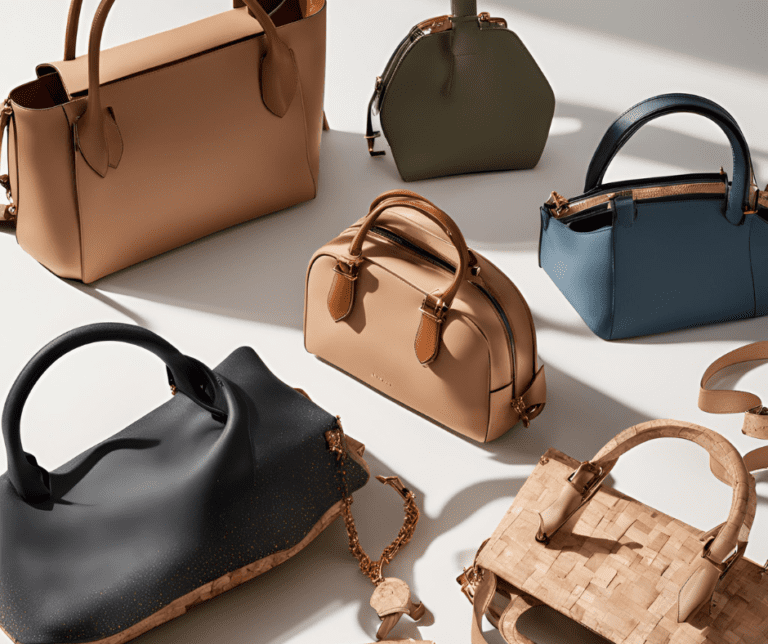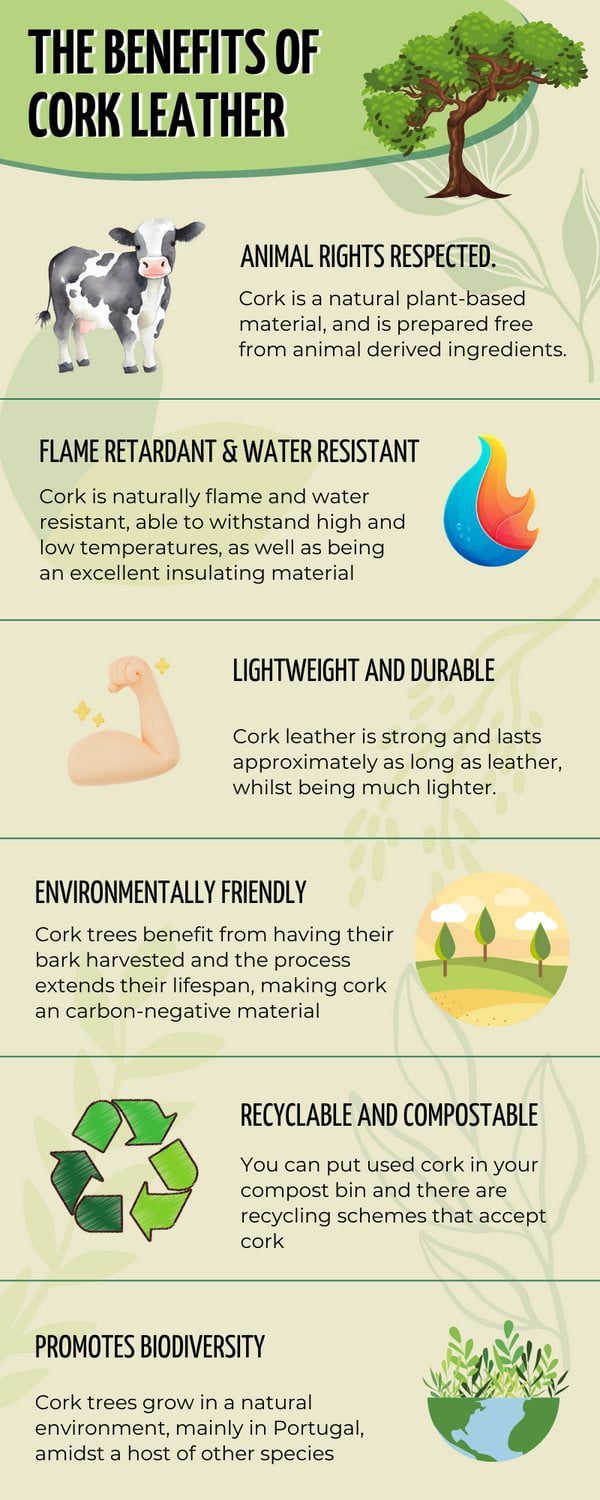In today’s world, the need for sustainable and eco-friendly materials is paramount. As consumers become increasingly conscious of their environmental impact, it’s essential to explore alternatives to traditional materials like leather. One such material that stands out for its sustainability and environmental benefits is cork. So why is cork a better choice for the environment and a sustainable alternative to leather?
Renewable and Sustainable
The harvesting of cork bark from cork oak trees does no harm, and can be repeated many times over the tree’s life span. The trees also absorb CO2 from the atmosphere, making cork a carbon-negative resource.

Reduced Environmental Footprint
The production of cork products involves significantly lower environmental impact when compared to leather. The processing of cork requires less energy, water, and chemicals. Leather production, on the other hand, involves numerous chemical treatments, such as tanning, dyeing, and finishing, which result in harmful by-products like chromium, heavy metals, and toxic dyes. These substances pose serious health risks to both workers and the environment, polluting waterways and soil.
Durability and Versatility
Cork is a highly durable material that can withstand wear and tear, making it suitable for a wide range of applications, including fashion, accessories, and upholstery. The longevity of cork products reduces the demand for replacements, thereby reducing waste and conserving resources. In contrast, leather products often require intensive maintenance and have a limited lifespan, leading to increased waste and environmental degradation.
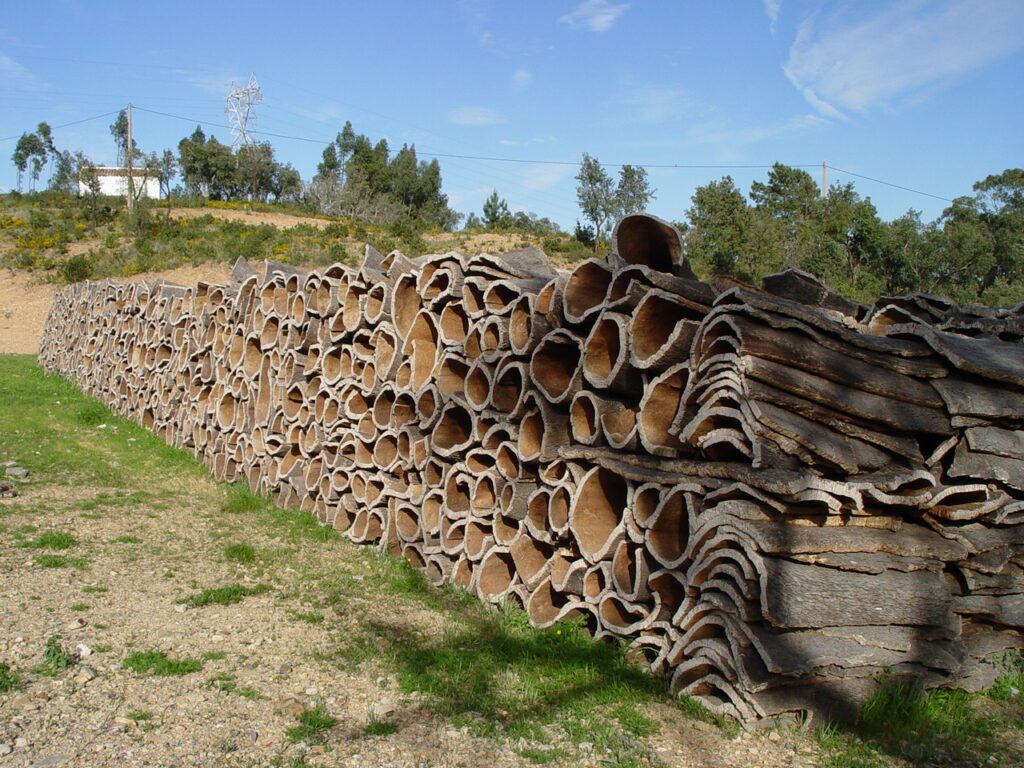
Ethical Considerations
Choosing cork over leather aligns with ethical considerations as well. The leather industry is associated with animal cruelty, as it relies on the slaughter of animals for their hides. By opting for cork products, individuals can support a cruelty-free alternative, contributing to the reduction of animal suffering. Cork is a realistic sustainable alternative to leather that has all the practicality without the harm to animals.
Conclusion – A Sustainable Alternative to Leather
Cork emerges as a sustainable and eco-friendly alternative to leather, offering numerous environmental benefits. Its renewable nature, reduced environmental footprint, durability, and versatility make it a superior choice. Moreover, choosing cork supports ethical practices by avoiding animal cruelty. By embracing cork as a viable option for various products, we can take a significant step towards a greener and more sustainable future.
Links:
- People for the Ethical Treatment of Animals (PETA). Leather: Animals Abused and Killed for Their Skins. https://www.peta.org/issues/animals-used-for-clothing/animals-used-clothing-factsheets/leather-animals-abused-killed-skins/
- People for the Ethical Treatment of Animals (PETA). Environmental Hazards of Leather https://www.peta.org/issues/animals-used-for-clothing/leather-industry/leather-environmental-hazards

